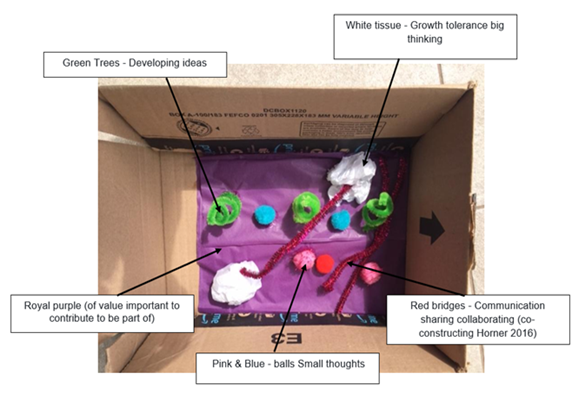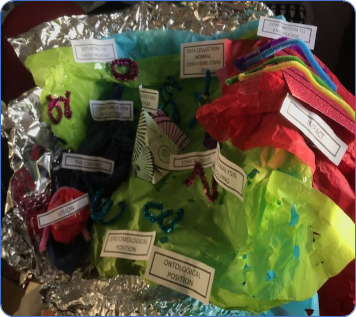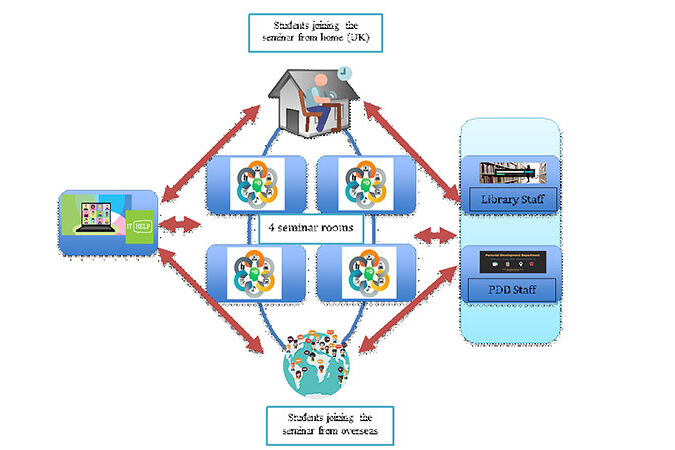As an education consultant, doctorate researcher, and school governor supporting inner-city schools. categorised as stuck (Spielman 2019) in Special measures (SM) or Requires improvement (RI). I have been interested in exploring the role of the Community Governor (CG) in school improvement (SI) from the perspective of the Community Governor, governing board, and Ofsted. My chosen community in my exploration, is inner-city, orthodox Muslim, with diverse microcultures who attend the same primary school.
Context
Seminal changes in government policy by the DfES in 2010-11, concerning governor's accountability for school improvement, marginalised community governance.
Government policy became exclusive (James 2014) requiring governors of diverse cultures to interact with middle class positionalities and political ideologies that were little understood. Research showed (James et al 2014) that socio-economic environments impacted on governor agency and capital, influenced by low self-esteem and status in the community, created passivity in governing.
The academisation initiative developed a ‘corporate governance model’ with non-executive boards, and appointments focused on business skills. Failing schools were placed with independent sponsors (Ball 2011), often in other parts of the country, removing power from community governors, propagating a passivity in decision making in SI.
This was defined as perceptions of inequality about ineffective democratic governance, demoting expectations of the communitygovernor role, and creating disengagement (Mead 2004). With little training for community governors to meet these challenges, there has been increasing failure in Ofsted inspections, affecting aspiration and esteem of the community and its culture (West 2010 cited in Keddie 2015).
Research indicates there is a gap in the understanding of the role of CG within governing bodies in junior schools in SM (Young 2017). This lack of awareness of the factors that act on decision making in developing effective SI, leads to prolonged periods of schools stuck in categories of failed education with communities feeling disempowered and marginalised.
Research on models of stakeholder and professional governance (Wilkins 2014), confirmed my own experience, that stakeholders from communities were disappearing from decision making. The crucial observation being made that:
‘the redistribution of power can only be realised if civic empowerment and participation are at the heart of governance’ (Wilkins 2014 p194).
My EdD study
My thesis, which emerged from my pilot enquiry, aims to explore the perceptions of community governors, on how they contribute to decision making in SI in an inner-city junior school in SM or RI. How do Community Governors define their role within the governing body? What factors constrain their ability to collaborate?
As a researcher could I reconceptualise governor practice and behaviours through co-constructing, knowledge sharing, empowerment of CG voice delivered through communities of practice methodologies (Lave Wenger 1991)? The theoretical contribution to knowledge is not only in the exploration and perspectives of the community governor but also in the methodological framework and practice adopted.
 The junior school in the pilot enquiry was one of six primary schools, threatened with academisation, due to being in a category of SM (Ofsted 2014). The local authority encouraged ‘Federating’ the schools, keeping governance control of financial and decision-making powers.
The junior school in the pilot enquiry was one of six primary schools, threatened with academisation, due to being in a category of SM (Ofsted 2014). The local authority encouraged ‘Federating’ the schools, keeping governance control of financial and decision-making powers.
The pupils from the community represented Pakistani (38%), Bangladeshi (34%) Indian (17%) Afghan (5%) and Eastern European (2%) backgrounds. The level of disadvantaged supported by the pupil premium and free school meals placed it above the national average (Ofsted report 2014).
 One community governor collaborated in building on knowledge emerging from the Identity box (Brown 2019). and walking interviews (Evans and Jones 2011). The methodological approach was crucial, placing control and communication of information within the domain of community governor, providing empowerment where previous experiences in governance had been disempowerment and disenfranchisement.
One community governor collaborated in building on knowledge emerging from the Identity box (Brown 2019). and walking interviews (Evans and Jones 2011). The methodological approach was crucial, placing control and communication of information within the domain of community governor, providing empowerment where previous experiences in governance had been disempowerment and disenfranchisement.
The researcher role was one of collaboration, conceptualised through co-construction (Horner 2016). It viewed the habitus of governance through intimacy, passion, and values, and illuminated power relationships (Foucault 1995 Bourdieu 1996). Successful collaboration (Ansell and Gash 2007, Horner 2016) involved a sharing of history (habitus: Bourdieu 1996) a core interest (governance) that enabled trust, commitment, and shared understanding.
It required the researcher to take a position of vulnerability (Toma 2000) which recognised the research relationships as close, transactional, and inevitably influential’ (Guber Lincoln 1994 p110 cited in Love 2002).
The design was qualitative and interpretivist, (Creswell 2018), focusing on interaction, discourse, and collaboration (Horner 2016). There was an attempt to align methodologies of autoethnography, with the strands of habitus, in a social constructionist epistemology, to facilitate greater depth and insight.
Community Governor identity

‘for me, the colours mean, vibrancy opportunity and I think for me personally this is what inside…. hope…. giving kids the space to think, to have opportunities to grow …… I'm just a bridge of ideas.’
I did economics degree at University …. I understand my economics very well ……… I built a business.
G6 ‘so to me education is a cornerstone of society good education will support society in a rounded way…. that's why I think, everything else the government spend their money on, education and creating the opportunities, is the most important thing...

As collaborating researcher I shared my identity box, and through this process recognising aspects of shared identities positionalities and habitus, I could capture the rich diversity, attributes, wisdom and intellectual thinking available to school improvement through this community governor, which was not apparent in the normal governance process.
researcher journal entry
….here is a member of society who reaffirms an education concept that may be more effective, …… a vehicle for real learning communities through governor voice, community empowerment at all strata?
A valued and experienced member of the community has not had a voice in school governance (Young 2017), and this untapped agency is missing from driving SI. The question to be asked:
- Is it possible to ensure all governors particularly CG, have opportunities to share attributes, skills, and wisdom to enhance decision making in SI?
- How can equity and opportunity be created for all, but particularly for schools in SM/RI?
- Can new discourses of governance facilitate new and creative process of enhancing governor capital and agency?
Within the spirit of this conference, the emphasis is for practitioner researchers to facilitate platforms for debate for bottom up awareness raising, building possibilities, and imperatives that school governor communities, avail themselves of frameworks such as situated centripetal learning facilitated through communities of practice, taking back power and equality in decision making.
References
Ansell (2007) collaborative governance in theory and practice. Public administration, 18, pp. 543 571.
Ball S., and Jünemann., (2011) Networks new governance and education. Policy press Bristol
Bourdieu, P. (1986) The Forms of Capital, in J. G. Richardson (ed.) Handbook of Theory and Research for the Sociology of Education. New York: Greenwood Press. pp. 241-258.
Bourdieu, P. (1996) The rules of art: genesis and structure of the literary field. Cambridge:
Brown, Z. & Perkins, H. 2019, Using innovative methods in early years research: beyond the conventional, Routledge, London.
Coffield, F., Williamson, B. and University of London. Institute of, E. (2011) From exam factories to communities of discovery: the democratic route. London: Institute of Education.
DfE, 2010. The importance of teaching. London: DfE. DfE, 2011a. Academies [online]. Available
from: http://www.education.gov.uk/schools/leader ship/types of schools/academies. DfE,
DfE 2017 A Competency Framework for Governance The knowledge, skills and behaviours needed
for effective governance in maintained schools, academies and multi-academy trusts January 2017 Competency_framework_for_governance_.pdf
DfE 2019 Governance handbook For academies, multi-academy trusts and maintained schools March
2019 governance_handbook_2019.pdf.
Horner. K, (2016) Co-constructing research. A critical review ADRC available on-line.
James C (2014) Trends in the Governance and Governing of Schools in England, Local Government
Studies, 40:6, 893-909, DOI: 10.1080/03003930.2012.722839 To link to this article: http://dx.doi.org/10.1080/03003930.2012.722839
James, C. (2014b) Trends in the Governance and Governing of Schools in England. Local Government Studies, 40(6), pp. 893-909.
James, C., Connolly, M., Brammer, S., Fertig, M., James, J. and Jones, J. (2014) A comparison of the governing of primary and secondary schools in England. School leadership & management, 34(2), pp. 104-119.
Keddie, A., (2015) School autonomy accountability and collaboration: A critical review ’Journal of education and administration and History 47, (1) 1-17
Lave, J. and Wenger, E. (1991) Situated learning: legitimate peripheral participation. Cambridge: Cambridge University Press.
Love, K. and Shrimpton, B., 2002. Can one size fit all? The case study of a cd rom in teacher (pp. 389-399).
Mead, Lawrence M. “The Great Passivity.” Perspectives on Politics, vol. 2, no. 4, 2004, pp.
671–675. JSTOR, www.jstor.org/stable/3688535. Accessed 3 Aug. 2020.
Spielman, (2018/2019), The Annual Report of Her Majesty’s Chief Inspector of Education, Children’s
Services and Skills available at http://www.gov.uk/official-documents [Last Accessed 02/01/2021]
Toma, D., J. (2000) How Getting Close to Your Subjects Makes Qualitative Data Better,
Theory into Practice, 39:3, 177-184, DOI: 10.1207/s15430421tip3903_9
Visker, R. 1995, Michel Foucault: genealogy as critique, Verso, London.
Wenger, E. (1998) Communities of practice: learning, meaning, and identity. Cambridge: Cambridge University Press.
Wilkins, A. (2015) Education reform in England. International journal of inclusive education (19:11).
Wilkins, A. (2015) Professionalizing school governance: the disciplinary effects of school autonomy and inspection on the changing role of school governors. Journal of Education Policy, 30(2), pp. 182-200.
Young, H. (2017) Busy yet passive: (non-)decision-making in school governing bodies. British journal of sociology of education, 38(6), pp. 812-826.





